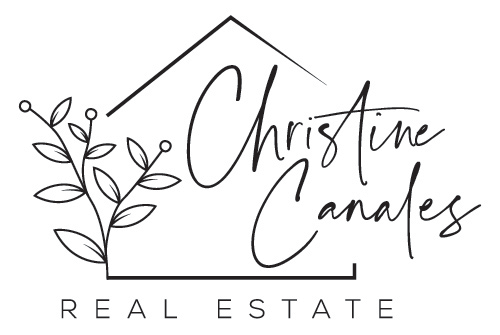Selling a house involves more than just finding the right buyer—it also requires understanding the financial responsibilities tied to the transaction. Closing costs, often overlooked in the excitement of a sale, are a crucial element of the process. These expenses encompass a range of fees that sellers must pay to finalize the deal, and being well-informed can help you avoid surprises at the closing table. From transfer taxes to escrow fees, let’s break down the essentials to help you prepare for this significant step in your home-selling journey.

Transfer Taxes and Recording Fees
Transfer taxes and recording fees are among the most common closing costs that sellers encounter. These charges vary depending on the state or municipality and are based on a percentage of the home’s sale price. Transfer taxes are levied by local governments to legally transfer the property title from the seller to the buyer while recording fees cover the cost of updating public records with the transaction details.
In areas with high property values, these costs can add up quickly, so it’s essential to research your local rates early in the process. Some states even offer exemptions or reduced rates for specific types of transactions, such as first-time homebuyers or inter-family sales, which could impact your total costs.
It’s also worth noting that these fees are typically non-negotiable, as they are dictated by law. However, understanding the specifics can help you anticipate what you owe and budget accordingly. Working closely with your real estate agent or attorney ensures you stay compliant and aware of any local requirements that could influence your final payout.
Accounting for these costs in advance reduces stress at closing and helps provide a clear picture of your net proceeds. With proper planning, you’ll be equipped to handle this key aspect of the selling process.
Real Estate Agent Commissions
One of the largest expenses sellers face is the commission paid to real estate agents. This fee is typically split between the seller’s agent and the buyer’s agent and averages 5% to 6% of the home’s sale price. While it’s a significant cost, this payment reflects the work agents put into marketing, negotiating, and closing the deal.
For sellers, this commission covers critical services such as professional photography, staging advice, listing the property on multiple platforms, hosting open houses, and handling inquiries from potential buyers. Additionally, agents use their market knowledge and negotiation skills to secure the best possible price and terms for your home.
In some cases, sellers may be tempted to forgo using an agent to save on commission costs. However, this approach often backfires, as experienced agents typically help sellers achieve a higher final sale price. Even after accounting for the commission, the expertise and network of a seasoned agent can result in a more profitable transaction.
When calculating closing costs, include this commission percentage and evaluate the value of having an expert guide you through the sale’s complexities. Knowing the trade-offs helps you make decisions that match your financial goals.
Title Insurance
Title insurance is another key closing cost. It protects against potential disputes over the property’s ownership. While buyers often purchase their own title insurance policies, sellers are usually responsible for paying for the buyer’s policy in many states. This expense guarantees that the property’s title is clear and ensures the buyer is protected against claims or liens that may arise after the sale.
The cost of title insurance is based on the sale price and varies depending on the provider and local regulations. On average, sellers can expect to pay a few hundred to a few thousand dollars for this coverage. Although it might seem like a hefty cost, title insurance plays a vital role in safeguarding the transaction and preventing costly legal issues in the future.
Working with a reputable title company streamlines this process, ensuring a thorough search of public records to verify the property’s ownership history. Identifying and resolving any title issues before closing is critical to avoiding delays or disputes that could jeopardize the sale.
While it may feel like an added burden, title insurance contributes to a smoother transaction and reassures buyers, making it a worthwhile investment when selling your home.
Escrow Fees
Escrow fees cover the cost of using a neutral third party to manage funds and documents during the closing process. Escrow companies or attorneys handle responsibilities such as holding the buyer’s earnest money deposit, ensuring all required paperwork is completed, and distributing proceeds to the appropriate parties once the transaction is finalized.
The fee for escrow services is typically split between the buyer and seller, with each party paying a percentage of the total cost. These fees depend on the property’s value and the complexity of the transaction but generally range from a few hundred to over a thousand dollars.
Escrow services provide peace of mind by ensuring that all financial and legal obligations are met before closing. For sellers, this includes verifying that any liens or outstanding debts on the property are resolved and that the buyer’s payment is securely handled.
By working with a trustworthy escrow company, you can feel confident that every detail is addressed, minimizing the risk of errors or disputes. Preparing for this cost in your closing budget ensures a seamless and efficient process as you transition to the next chapter of your real estate journey.
Homeowner's Association Fees and Property Taxes
For sellers in communities with homeowner’s associations (HOAs), outstanding fees or transfer charges may need to be paid at closing. Many HOAs require sellers to clear unpaid dues and sometimes charge a transfer fee to update their records to reflect the new owner. Depending on the association’s rules, these costs can range from a few hundred dollars to over a thousand.
Similarly, property taxes can impact your closing costs. Sellers are responsible for prorated property taxes up to the closing date. If you’ve already paid taxes for the year, you may be reimbursed for the portion covering the buyer’s ownership period. Conversely, unpaid taxes will be deducted from your proceeds to settle the account.
Understanding these obligations early in the process helps you prepare for any financial responsibilities related to your HOA or local tax authority. Reviewing your HOA bylaws and consulting with a tax professional can clarify these costs and prevent surprises during the transaction.
Including these potential expenses in your closing cost calculations ensures a smooth handoff to the buyer and a clearer picture of your net proceeds from the sale.
Miscellaneous Fees
In addition to major expenses, sellers often encounter various smaller fees during closing. These can include document preparation fees, courier or wire transfer charges, notary fees, and costs for any required inspections or certifications, such as pest or septic system inspections. While individually modest, these expenses can add up quickly.
Some buyers may also request repairs or credits based on the results of the home inspection. While not strictly a closing cost, these concessions affect your bottom line and should be factored into your financial planning. Addressing these requests upfront can prevent delays and ensure a smoother negotiation process.
Another possible fee is the cost of obtaining a payoff statement from your mortgage lender, which details the remaining balance on your loan. This ensures that the correct amount is paid off at closing and avoids complications related to lingering debts.
Reviewing all potential miscellaneous costs with your agent or closing attorney ensures no details are overlooked. Comprehensive preparation helps you feel confident and ready to tackle the final stages of your home sale.
Preparing to Sell with Confidence
Understanding closing costs is essential to selling your home. Each expense contributes to ensuring a smooth and legally sound transaction, and being well-prepared helps maximize your net proceeds. When you’re ready to take the next step in selling your property, contact us to discuss your goals and how to navigate this process with ease.
